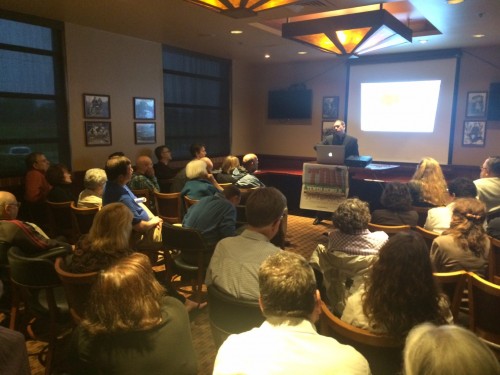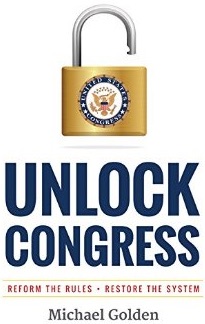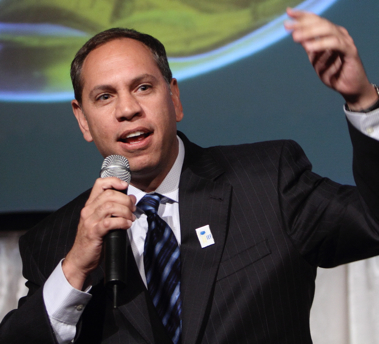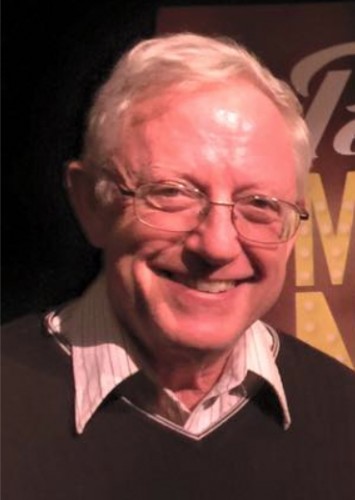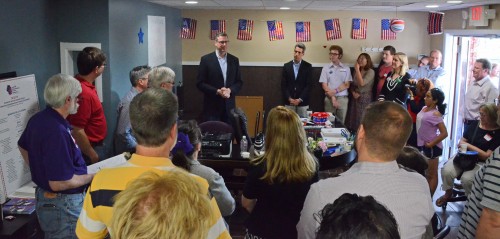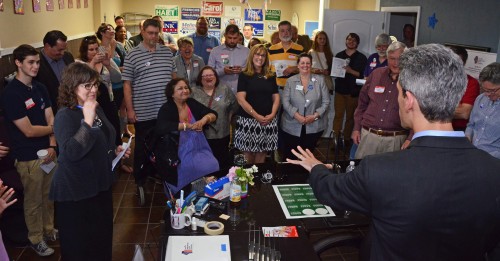by Carol Hillsberg
According to Lawrence Lessig, Harvard Law Professor and author, Unlock Congress by Michael Golden “offers the most powerful and concise account of the deep failure that is Congress today.” The book also offers solutions. In Professor Lessig’s words, it “gives hope.”
Golden spoke about his ideas on Thursday evening, June 11, at the latest installment of “Let’s Talk Politics,” a series hosted by Tenth Dems University.
Sharon Sanders, Tenth Dems University’s dean, introduced Golden to a crowd of more than 50 at the RAM Restaurant and Brewery in Wheeling. He began his presentation by stating that there are good people in politics and that the system is the problem. He then thanked Tenth Dems for promoting many of the ideas he advocates and for providing a forum for political conversations.
Golden’s goal in his book and his talks is to educate and inform about dysfunction in government and to propose effective remedies for this problem. At the center of Unlock Congress are what he identifies as structural defects that individually and in combination lead to negative effects on Congress’ performance. As Carol Marin wrote of Golden in the Chicago Sun-Times, “Unlock Congress is about making bipartisan politics operational once again…His book is readable, and needs to be read. It offers a vial of vaccine for the diseased politics that is crippling us.”
Among the defects Golden perceives are a flood of money into elections, rigged Congressional races, and two-year House terms. He said that such structural defects in our system drive counterproductive outcomes, deter negotiation and compromise, and distort fair representation. For example, due to Supreme Court decisions such as Citizens United, the money flood has produced an oligarchy in which the wealthiest 10 percent of the population have 15 times more influence on policies than the other 90 percent. Golden opined that two-year terms have led to a state of constant campaigning and fundraising, to the detriment of governing. Primary elections that lead to winner-take-all general elections, along with gerrymandering, have increased polarization, Golden said. He pointed out that in the last two decades the number of “moderates” who cross party lines in the House of Representatives has dropped from 113 to 26. And even though Democrats received a clear majority of House votes nationwide in the last two cycles, the larger number of Republican-drawn districts has given Republicans the majority of seats in the House.
Golden has recommended remedies for the ills he perceives. Among other things, he advocates extending U.S. House terms from two to four years, coinciding with presidential elections; unrigging Congressional races by instituting a system of proportional representation in which voters can vote for more than their first choice; and establishing campaign finance rules to counteract money’s influence on Congress. Regarding gerrymandered congressional districts, the evening made clear that any effective remedy would have to be federal; otherwise, progressive states that reformed their redistricting processes would only be ceding more undemocratic power to the less-progressive states that continued to gerrymander.
Following a brief question-and-answer session, Golden remained at the RAM Restaurant to continue the conversation informally while signing copies of his book.

